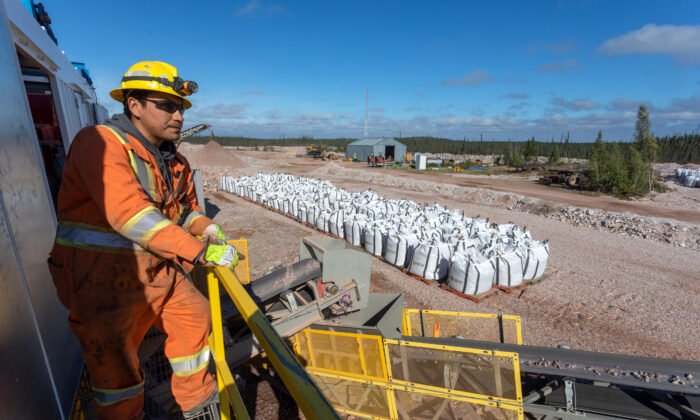Insufficient Federal Oversight of Mining Investments Puts Arctic at Risk of Chinese Influence, Warns Macdonald-Laurier Institute
The federal government’s critical minerals strategy not only fails to attract investment in Canada’s north, but it also leaves the Arctic vulnerable to security risks from Beijing and other malicious actors, as stated in a recent report.
China is exploiting Canada’s limited regulatory oversight of foreign investments, taking advantage of the gaps between Ottawa and provincial/territorial responsibilities. Coupled with a “severe shortage” of North American investment capital, these oversight gaps provide China with a strategic path to access the Arctic.
“Chinese state-owned enterprises are operating in plain sight in this country,” reads the report authored by former Assistant Deputy Minister of Northern Affairs Stephen Van Dine.
“If left unaddressed, Canada’s critical minerals strategy will be undermined, leaving the Arctic vulnerable.”
China’s recent attempt to gain access in the Canadian Arctic involved purchasing an 18.1 percent share in Vital Metals, an Australian mining company that owns Canada’s only operating rare earth mine, the Nechalacho project in the Northwest Territories.
A subsidiary of Chinese company Senghe acquired stocks in Vital Metals, a move that went unchallenged by Ottawa due to it falling below the “trigger” thresholds in the Canadian Investment Act, as outlined in the report.
This acquisition allowed Senghe to secure a supply agreement for the stockpile of rare earth minerals mined in Canada, further enhancing China’s global dominance in this sector.
Investment Canada Act Issues
The Investment Canada Act, administered by the federal department of Industry, Science and Economic Development Canada (ISED), oversees foreign investments in the country.
The act grants the federal government the authority to intervene, halt purchases, and potentially reverse transactions, but such actions are likely to face strong opposition from a struggling junior mining sector seeking investment.
The act is currently being updated through Bill C-34, the most comprehensive revision since 2009.
Provincial and territorial governments lack jurisdiction to address issues related to foreign investment or resulting national security concerns under the act.
“All three territorial governments are grappling with challenges related to Canada’s critical minerals strategy and the need for investment in their regions,” writes Mr. Van Dine. “The lack of a comprehensive understanding of Chinese involvement in northern mining projects further complicates the situation.”
In another project in the Northwest Territories near Yellowknife, Fortune Minerals’ NICO critical minerals project received funding from Chinese-owned Procon, highlighting the necessity for a registry of northern projects containing foreign direct investment data.
“While the government has clear ambitions with the critical minerals strategy, the current approach lacks coherence, posing a risk to Canada’s national interests in the Arctic,” he states.
Mr. Van Dine suggests enhancing junior mining companies’ access to capital, strengthening investment regulatory oversight, and promoting greater intergovernmental cooperation in the critical minerals approach.
Risks
The report emphasizes the need for Canada’s critical minerals strategy to safeguard national interests and address security risks to ensure control over critical metals and rare earth resources, reducing dependence on Chinese-made products.
The report points out that allowing access or ownership in Canada’s north could give China the ability to install monitoring equipment on those properties at will.
Improved understanding of security levels in the territories and increased collaboration between Ottawa and territorial/indigenous governments are crucial steps in addressing these challenges, according to Mr. Van Dine.
He also recommends streamlining oversight in the mining sector by eliminating duplication among government agencies, enabling regulators to share information and expedite reviews.
Addressing the current shortcomings in the critical minerals strategy through the passage of Bill C-34 and improving access to capital are essential steps, he concludes.
“Attracting investors supportive of Canada’s critical minerals strategy and national security cannot be passive – time is of the essence,” he cautions.






